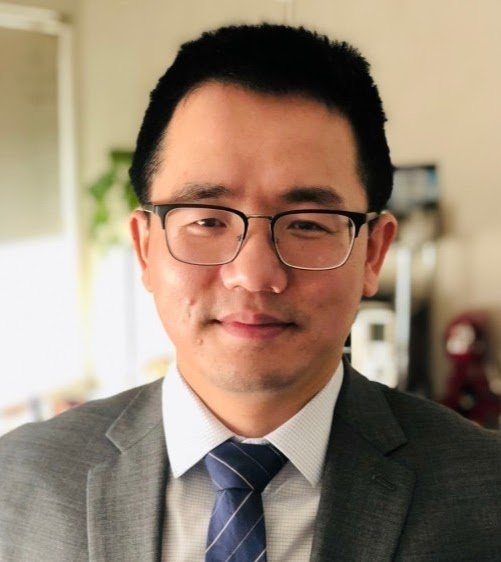Kaiyu Fu
Kaiyu Fu
Department of Radiology and Electrical Engineering
Stanford University
Host: Professor Michael Bowser
In vivo Real-time Biosensor: Convergence of Electroanalytical Chemistry, Nanotechnology and Bioengineering
The emerging biosensing devices largely extend our capability to measure and monitor the biomolecules in living organisms. Yet most commercially available detection platforms are ether simplified for a handful of abundant molecules in vivo, e.g., glucose and electrolytes, or designed with time-consuming pretreatment procedures for targets with a lower concentration. There is an urgent quest to integrate the advancement of analytical chemistry and nanotechnology to solve the long-existing problems for biodetection.
In this talk, I will first present a novel electrochemical detection platform that consists of high-density nanoscale electrodes, viz. nanopore electrode array (NEA), for ultrasensitive biomolecule detection. Through a robust fabrication method to achieve nanopores with embedded electrodes, I will explore how electron transfer and ion transport are coupled in the nanostructures for the m\t (ass-limited samples. Next, I will present a real-time sensing technology to measure biomolecules in live animals based on the above-mentioned nanoporous electrode. In the first example, I will discuss an implantable NEA drug sensor to collect tissue-based pharmacokinetics. So far, the efficacy and safety of chemotherapy are measured based on blood samples. This NEA drug sensor can continuously measure the concentrations of the chemotherapy drug at multiple tumor sites in a rodent model. Due to the tumor microenvironment heterogeneity, it demonstrates apparent differences in pharmacokinetics relative to the circulation that could meaningfully affect treatment. Last, I will introduce the second example that an implantable NEA neurochemical sensor can continuously measure the neurotransmitters in the cerebrospinal fluid of the brain. This NEA neurochemical sensor is designed on a flexible substrate with multiple sensing elements for chronic recording at different brain regions. In addition, the whole system is integrated with a wireless module as a potentially cable-free device to track the behaviors of freely moving animals associated with the detection of neurochemical signals. Overall, this talk will depict a generalized approach to access in vivo real-time biochemical information for future clinical applications.
Research
My research overlaps three disciplines: electrochemistry, nanoscience, and synthetic biology. Several emerging and exciting topics derived from these fields surge upon instrumentation advancement, cutting-edge nanotechnology, and commercial biomedical devices over the past decade. Recently, I am particularly interested in 1) nanoscale electrochemistry, which paves the way to the development of ultrasensitive analytical platforms reaching a single-entity detection level; 2) electrochemical biosensors for point-of-care diagnostics and chronic disease management; and 3) nanobiotechnology, e.g., DNA nanotechnology and direction evolution of nucleic acids, aiming to manipulate the molecular recognition with unprecedented precision and efficiency.
Kaiyu Fu
Kaiyu Fu is a postdoctoral associate of Radiology and Electrical Engineering at Stanford. He obtained his Ph.D. degree in Analytical Chemistry from Notre Dame. Kaiyu is one of the ACS Division of Analytical Chemistry Graduate Fellowship recipients. He is broadly interested in advancing electroanalytical methods, including the fabrication of micro/nanoscale electrodes for lab-chip devices and the application of electrochemical biosensors for point-of-care diagnostics.
